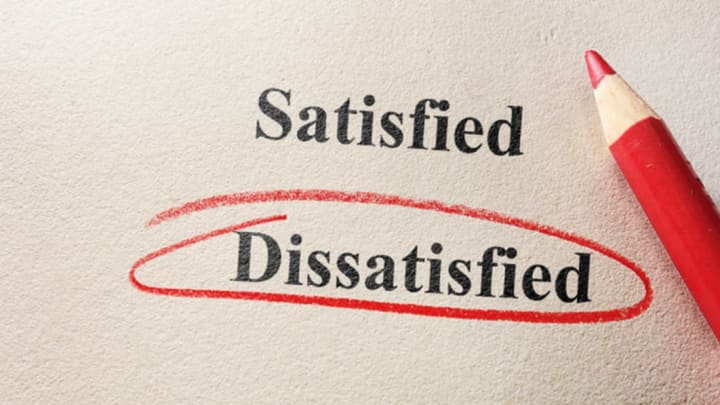12 Old Words to Spice Up Your Gossip and Common Complaints
By Sonia Weiser

According to a study [PDF] about gossiping from evolutionary psychologist Robin Dunbar and analyzed in "Have You Heard? Gossip's Actually Good and Useful," from The Atlantic, two thirds of conversations tend to be made up of "Social topics—personal relationships, likes and dislikes, anecdotes about social activities ..." and from these dialogues, we pick up on social norms, and rules of behavior; we learn what not to do through hearing about the mistakes that others have made.
Still, gossiping about the same things with the same people can get tiresome. Not that you should stop—an article in the New York Times on workplace environments noted that complaining in moderation can be helpful rather than harmful. So keep complaining—just add some variety to your complaint syntax with these 12 old and highly impressive words, which come courtesy of Phrontistery, a vast listing of outdated vocabulary; all quoted definitions come from the Oxford English Dictionary.
1. antithalian, adj.
First Use: 1818
Definition: "Opposed to fun or festivity"
Example: I would have invited Sarah to my birthday party, but I know she’ll RSVP no—she’s always been antithalian.
2. abligurition, n.
First Use: 1724
Definition: "Extravagant spending on food and drink"
Example: I’d love to go out to dinner with you, but can I pick the place? You tend to suffer from abligurition, and I really can’t afford that right now.
3. cachinnate, v.
First Use: 1824
Definition: "To laugh loudly or immoderately"
Example: The movie wasn’t that funny, but this person behind me was cachinnating in my ear the entire time.
4. fanfaron, n. (and adj.)
First Use: 1622
Definition: "A blusterer, boaster, braggart"
Example: My date was such a fanfaron—he only talked about his job promotion and his workout routine.
5. hadeharia, n.
First Use: unknown
Definition: Frequent use of the word "hell"
Example: Before we go to that Easter party, can you talk to Michael and tell him to really work on reining in his hadeharia? I don’t want him to offend anyone.
6. hindermate, n.
First Use: 1843
Definition: "A companion who is a hindrance"
Example: As much fun as it sounds to go with you and your boyfriend on a date, I’m worried that I’d just be a hindermate and spoil your evening.
7. hircismus, n.
First Use: unlisted in the OED. Hircismus stems from the latin root hirc, meaning goat. The word hircine, which means "having a goatish smell," was first used in the 17th century.
Definition: The medical term for smelly armpits
Example: There’s this guy at the gym who has the worst hircismus after he exercises. Even if it’s just a 15 minute run, we have to call the cleaning staff to spray air freshener.
8. lleist, n.
First Use: 1832
Definition: "One who makes much use of the pronoun, or writes of himself as he"
Example: Listen to Sammy. He is speaking now. He admits to being an illeist. He’s sorry if it annoys you. He’s finished his apology. Good day.
9. negotiosity, n.
First Use: 1678
Definition: "Constant occupation in business or other matters"
Example: I can’t tell if she’s avoiding me or it’s a real case of negotiosity. Either way, I'm offended.
10. obganiate, v.
First Use: 1623
Definition: "To be tediously repetitious"
Example: While some find that alcohol makes them charming, others—though unaware of it—become like a broken record of awkward comments, and obganiate until their listeners are forced to leave.
11. philodox, n.
First Use: 1603
Definition: "A person who loves or vehemently propounds his or her own opinions; a dogmatic or argumentative person"
Example: There’s this girl in my creative writing class who’s the worst philodox—she won’t let anyone else say anything and she refused to have her story workshopped because she claimed that unlike anyone else, she was able to "self edit."
12. Sputative, adj.
First Use: ~1639
Definition: "Of, characterized by, given to (excessive) spitting or salivation"
Example: I asked Luke if his mouth produces a lot of saliva because he’s sputative, but he says no. So he has no excuse.